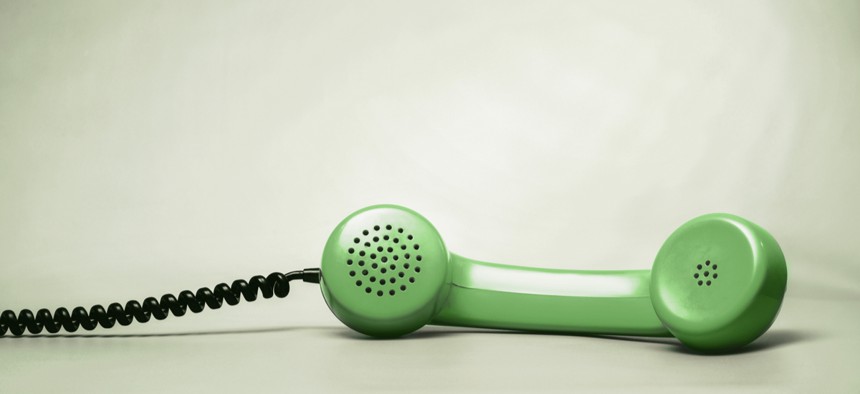FCC Proposes $225 Million Fine for Telemarketers Behind Massive Robocall Operation

Oleg Krugliak/Shutterstock.com
The automated calls misled those who answered into thinking they were from major health insurance providers.
The Federal Communications Commission on Tuesday proposed the largest fine in its 86-year history—$225 million—against Texas-based telemarketers John C. Spiller and Jakob A. Mears, who operated companies that the commission alleges were behind 1 billion spoofed robocalls in the first four-and-a-half months of 2019.
Formally called a Notice of Apparent Liability for Forfeiture, or NAL, the FCC’s proposed action is the latest taken against illegal robocalls since COVID-19 was declared a national emergency. According to the agency’s release, the record-breaking move comes after an FCC-led investigation revealed that the telemarketers’ multiple businesses, collectively referred to as Rising Eagle, unleashed a calculated robocalling campaign that was deliberately designed to swindle Americans on health insurance.
“Like other nefarious robocalling scams, Rising Eagle primarily used spoofed Caller ID numbers to flood consumers with prerecorded calls. The robocalls misled consumers into thinking that the calls were from well-known and reputable health insurance providers, such as Cigna and Blue Cross Blue Shield. But that was far from the truth,” FCC Chairman Ajit Pai wrote in a statement following the announcement. “Instead, the unsuspecting recipients of these robocalls were transferred to Rising Eagle’s clients, which attempted to sell them short-term, limited-duration health insurance plans offered by lesser known entities—a far cry from expectations.”
Both Congress and the agency have pursued and elevated enforcement actions against the disruptive and detective automated calls in recent months, and particularly as robocalls across the nation were reaching record highs. But according to the FCC’s release, 2018 first ushered in a notable spike in consumer complaints and robocall traffic centered on health insurance and other health care products. One organization revealed that approximately 23.6 million health insurance robocalls were crossing the four largest wireless carriers’ networks daily—and the FCC Enforcement Bureau’s own investigation found that “a large portion of this unwelcome robocall traffic was driven by Rising Eagle.”
“One disabled and elderly recipient attested to having fallen down attempting to answer these repeated calls,” Pai noted.
Businesses that saw their caller IDs spoofed by the operation were also inundated with calls back from frustrated customers. “At least one company was hit with several lawsuits because its number was spoofed, and another was so overwhelmed with calls that its telephone network became unusable,” Pai said. The FCC chairman added that on top of the millions of spoofed calls, Spiller also admitted to investigators that “he took particular care to include customers who had put their names on the National Do Not Call Registry—because he “‘found his sales rates ... rose substantially.’”
FCC’s NAL action is only the beginning of a larger process, and it does not represent a final commission action. Next, those involved will have the opportunity to respond. After that, the commission will consider their submission of evidence and legal arguments, then make the next moves to resolve the matter.
On the heels of the commission’s vote to set forth this NAL, a group of state attorneys general from Arkansas, Indiana, Michigan, Missouri, North Carolina, Ohio and Texas filed suit against the telemarketing party for potentially violating the Telephone Consumer Protection Act.
“In other words, this is a joint project to bring an end to an especially ugly spoofing operation,” Commissioner Jessica Rosenworcel said in her public statement regarding the NAL. “But there’s something missing in this all-hands effort. That’s the Department of Justice.”
In their follow-up statements, Rosenworcel and Commissioner Geoffrey Starks both applauded the commission's action but urged the Justice Department, which the FCC turns to for help collecting the fines it levies, to support it in fully following through on necessary enforcement actions.
“We need them to help. So when they don’t get involved—as here—that’s not a good sign,” Rosenworcel wrote.






